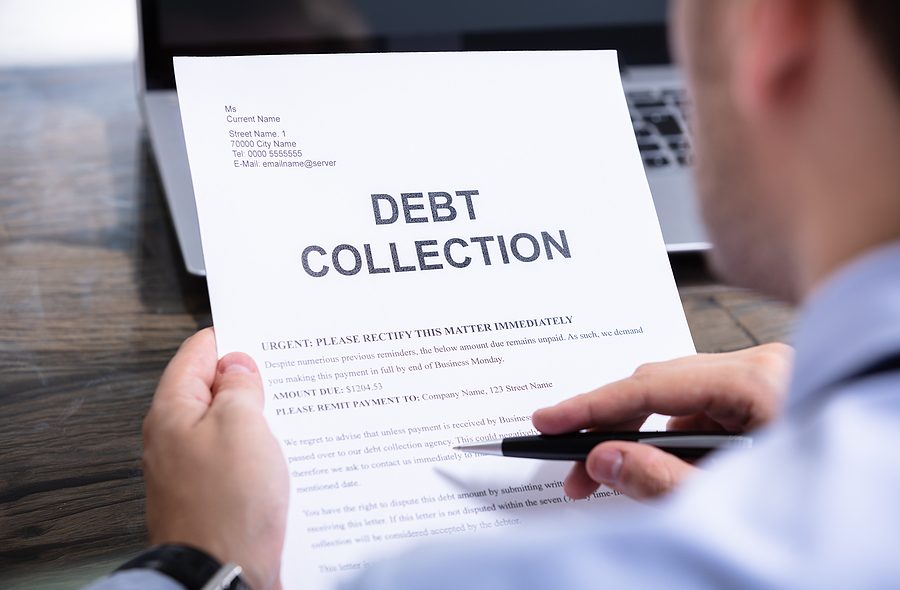A bankruptcy discharge gives a person a fresh financial start, freeing him or her from the stress of collection calls and aggressive debt collection practices. However, the fact that a debt has been discharged successfully in a bankruptcy case does not necessarily mean debt collectors will still not try and attempt to pursue collection of the debt. What happens in these situations?
Under the U.S. Bankruptcy Code, a discharge is a permanent court order that prohibits creditors from pursuing any type of collection on discharged debts. These prohibited actions include filing legal cases to collect on the debt, as well as communications with the consumer via personal contacts, letters, and phone calls. Essentially, the discharge in a Chapter 7 or Chapter 13 bankruptcy case relieves the filer from any personal responsibility to pay off the debt.
Not all consumer debts are dischargeable in a bankruptcy case. Certain debts are prohibited as a matter of public policy from being discharged, including government-backed student loans, child support, alimony, tax debt, and any debts incurred because of improper or illegal behavior. Creditors for these debts can continue collecting on them even after the bankruptcy case is finalized.
Once the bankruptcy discharge is granted, any creditors on debts that were a part of the final order are notified by the court that the debts owed to them have officially been discharged and that they will be in contempt of court if the creditor continues to collect on them. Even if, for some reason, a creditor is left out of the notice and never receives the paperwork from the court, he or she is still bound by the discharge order.
Some debt collectors can be persistent and may continue to contact the consumer. Other creditors may argue they are not bound by the court’s order even though they are, making false claims in hopes they will fool the consumer.
If this happens, it is best to report the debt collector to the bankruptcy court. Depending on the communications, the collector could face sanctions from the court for violating the discharge order. These sanctions could involve payment of damages to the consumer, as well as attorney fees.
Please click here to read more.
If you have questions on this topic or are in financial crisis and considering filing for bankruptcy, contact an experienced Miami bankruptcy attorney who can advise you of all of your options. As an experienced CPA as well as a proven bankruptcy lawyer, Timothy Kingcade knows how to help clients take full advantage of the bankruptcy laws to protect their assets and get successful results. Since 1996 Kingcade Garcia McMaken has been helping people from all walks of life build a better tomorrow. Our attorneys’ help thousands of people every year take advantage of their rights under bankruptcy protection to restart, rebuild and recover. The day you hire our firm, we will contact your creditors to stop the harassment. You can also find useful consumer information on the Kingcade Garcia McMaken website at www.miamibankruptcy.com.

